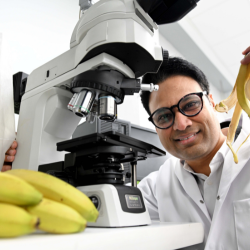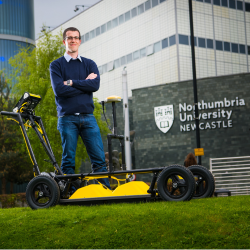-
Study
-
UCAS Clearing 2024
- Clearing Courses
- The Clearing Process
- UCAS Tariff Points
- Clearing 2024 FAQs
- Confirmation
- Clearing Virtual Event
-
Undergraduate
- Search for a Course
- Undergraduate Open Day & Events
- Application Guides
- Northumbria University UCAS Exhibitions
- Foundation Years
- Undergraduate Fees & Funding
- School & College Outreach
- Continuing Professional Development
-
Postgraduate
- Postgraduate Study Degree
- Postgraduate Research Degrees
- Postgraduate Open Days and Events
- Postgraduate Fees & Funding
- Flexible Learning
- Thinking about a Masters?
- Continuing Professional Development
- Change Direction
-
Student Life
- The Hub - Student Blog
- Accommodation
- Life in Newcastle
- Support for Students
- Careers
- Information for Parents
- Students' Union
- Northumbria Sport
-
-
International
International
Northumbria’s global footprint touches every continent across the world, through our global partnerships across 17 institutions in 10 countries, to our 277,000 strong alumni community and 150 recruitment partners – we prepare our students for the challenges of tomorrow. Discover more about how to join Northumbria’s global family or our partnerships.
View our Global Footprint-
Applying to Northumbria
- European Union
- Our London Campus
- Northumbria Pathway
- International Events
- Entry Requirements and Country Representatives
- Regional Offices
-
Northumbria Language Centre
- Faculty Requirements
- Acceptable English Requirements
- Pre-Sessional English and Study Skills
- Academic Language Skills Programmes (ALS)
-
International Fees, Funding & Scholarships
- International Undergraduate Fees
- International Undergraduate Funding
- International Masters Fees
- International Masters Funding
- International Postgraduate Research Fees
- International Postgraduate Research Funding
- International Money Matters
-
Life at Northumbria
- International student support
- Careers
-
International Mobility
- Current Northumbria Students
- Incoming Exchange Students
-
-
Business
Business
The world is changing faster than ever before. The future is there to be won by organisations who find ways to turn today's possibilities into tomorrows competitive edge. In a connected world, collaboration can be the key to success.
More on our Business Services -
Research
Research
Northumbria is a research-rich, business-focused, professional university with a global reputation for academic quality. We conduct ground-breaking research that is responsive to the science & technology, health & well being, economic and social and arts & cultural needs for the communities
Discover more about our Research -
About Us
-
About Northumbria
- Our Strategy
- Our Staff
- Place and Partnerships
- Student Profiles
- Alumni Profiles
- Leadership & Governance
- Academic Departments
- University Services
- History of Northumbria
- Contact us
- Online Shop
-
-
Alumni
Alumni
Northumbria University is renowned for the calibre of its business-ready graduates. Our alumni network has over 237,000 graduates based in 178 countries worldwide in a range of sectors, our alumni are making a real impact on the world.
Our Alumni - Work For Us
What will I learn on this module?
This module will develop your understanding of how microbes pervade the environment and impact the preparation, storage and safety of foods and drinks. You will explore the types of cellular microbes and their metabolism including yeast, filamentous fungi and bacteria. We will also consider the biology of non-cellular infectious agents such as viruses and prions and countermeasures required to prevent food-borne infection. You will explore the microbiology of the human digestive tract in health and disease and distinguish infection with food-borne pathogens from food-poisoning. Additionally, the value of microbes as probiotics will be explored. You will see the impact of culture conditions on food preservation and on laboratory-based tests for food safety. You will culture and qualitatively examine microbes to identify them and will also enumerate these in order to assess risk to human health or product quality. Additionally, you will also learn other quantitative techniques such as bioassays and estimations of microbial inactivation as in, for example, pasteurisation. You will consider the frequency and impact of endospore formation in relation to all of these aspects. Another important and exciting facet of the course will be the rapid detection of microbial products like DNA and antigens using modern molecular analyses rather than traditional culture-based methods.
How will I learn on this module?
You will learn through a linked series of lectures and practical classes. In lectures, the underlying theory and principles of food-related microbiology and analytical methods will be explained and illustrated with real-life examples and applications. You will also gain laboratory experience in the handling, detection, identification, enumeration and molecular analysis of microbes in various food matrices.
How will I be supported academically on this module?
You will be taught by a small team of academics who will deliver lectures and lead practical classes. Each team member will provide support and guidance around the topics they teach. Support regarding the assessments associated with the module can be gained from the module tutor. Staff will be available for discussions in/after timetabled sessions (particularly during practical classes) and appointments can be made at other times to receive support. Your work will be supported by a detailed practical workbook provided by the module tutor and additional resources available through the module space on our e-learning portal.
What will I be expected to read on this module?
All modules at Northumbria include a range of reading materials that students are expected to engage with. The reading list for this module can be found at: http://readinglists.northumbria.ac.uk
(Reading List service online guide for academic staff this containing contact details for the Reading List team – http://library.northumbria.ac.uk/readinglists)
What will I be expected to achieve?
Knowledge & Understanding:
M1. evidence a broad understanding of the diversity of microbes and prions associated with food and drinks, the risks or benefits they generate and appropriate safeguards and countermeasures applied in the food industry.
M2. demonstrate you understand the underlying principles of a range of selected culture-based and molecular analyses.
Intellectual / Professional skills & abilities:
M3. manipulate microorganisms safely in culture and testing protocols without introducing contamination
M4. generate, interpret and report qualitative and quantitative data from microbiological investigations
How will I be assessed?
Blended practical and theoretical examination focussed upon the identification of microbiological entities in foods and drinks and risks/ benefits associated with their presence
Contributes 50% module score.
MLOs assessed: all.
Interpret data from and offer a methodological critique of a case study analysis involving an aspect of food microbiology (2000 words)
Contributes 50% module score.
MLOs assessed: M1-M2, M4.
Formative assessment for each aspect will be given by MCQ series provide on eLP.
Pre-requisite(s)
N/A
Co-requisite(s)
N/A
Module abstract
This module focusses on the diversity of microorganisms and other microbiological entities (viruses and prions) and the impact that they have on the production, safety, and storage of food and drinks. You will study how the ambient conditions in food matrices inhibits or selects for the culture of important microorganisms and how laboratory culture environments can be manipulated to aid identification of contaminating microorganisms. You will see the value of culture-based analyses of microbial content as well as exploring the principles and applications of more modern rapid molecular-based tests. The teaching and assessment here should equip you to make professional judgements on the type and outcomes of microbiological analyses necessary to promote quality in the food industry.
Course info
UCAS Code BD46
Credits 20
Level of Study Undergraduate
Mode of Study 3 years Full Time or 4 years with a placement (sandwich)/study abroad
Department Applied Sciences
Location City Campus, Northumbria University
City Newcastle
Start September 2024 or September 2025
All information is accurate at the time of sharing.
Full time Courses are primarily delivered via on-campus face to face learning but could include elements of online learning. Most courses run as planned and as promoted on our website and via our marketing materials, but if there are any substantial changes (as determined by the Competition and Markets Authority) to a course or there is the potential that course may be withdrawn, we will notify all affected applicants as soon as possible with advice and guidance regarding their options. It is also important to be aware that optional modules listed on course pages may be subject to change depending on uptake numbers each year.
Contact time is subject to increase or decrease in line with possible restrictions imposed by the government or the University in the interest of maintaining the health and safety and wellbeing of students, staff, and visitors if this is deemed necessary in future.
Useful Links
Find out about our distinctive approach at
www.northumbria.ac.uk/exp
Admissions Terms and Conditions
northumbria.ac.uk/terms
Fees and Funding
northumbria.ac.uk/fees
Admissions Policy
northumbria.ac.uk/adpolicy
Admissions Complaints Policy
northumbria.ac.uk/complaints














